I’ve become increasingly aware of the importance of maintaining brain health as I navigate the journey of aging. Supporting healthy brain aging is crucial for preserving cognitive function and enhancing overall well-being as I get older. With countless supplements and foods claiming to promote brain health, knowing which ones actually make a difference can feel overwhelming.
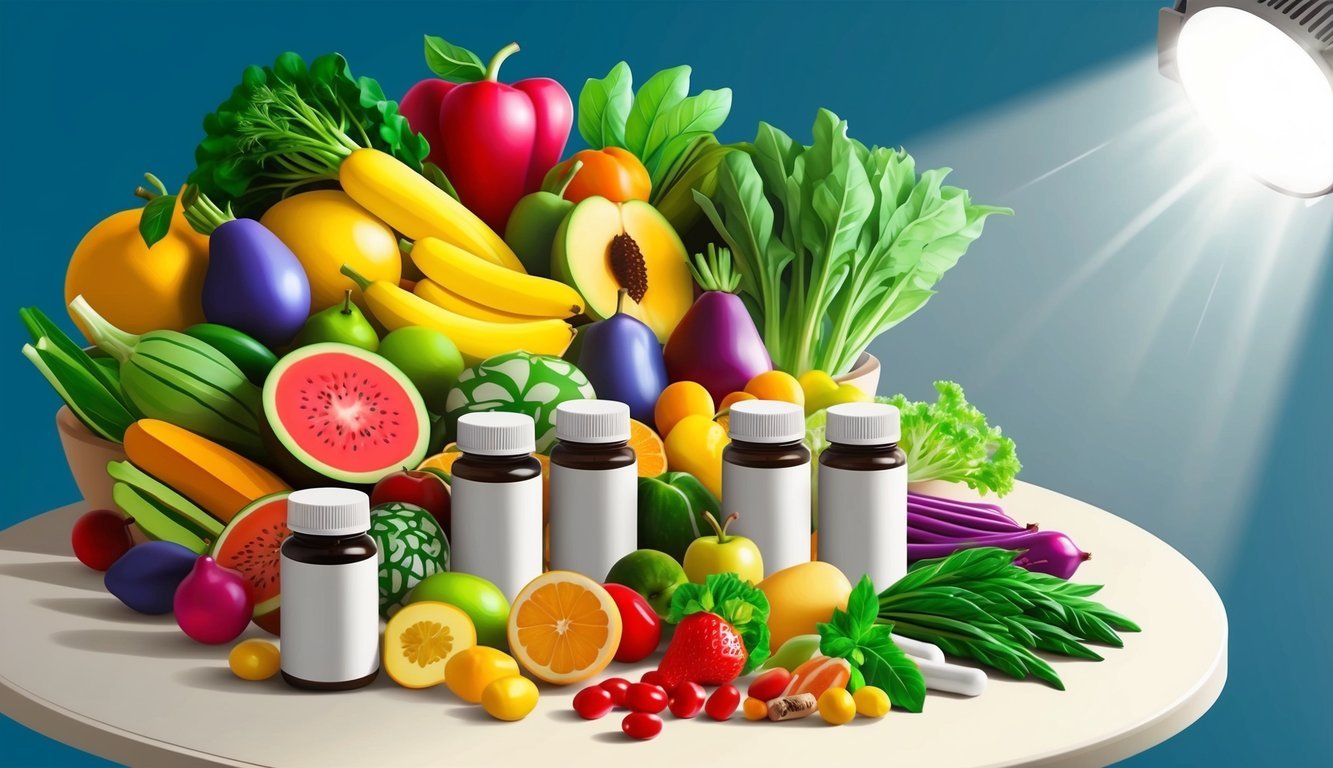
In this article, I’ll explore a selection of top foods and supplements that have the potential to support cognitive function.
From nutrient-rich options to specific supplements, I’m excited to share what I’ve found valuable in my quest for a sharper mind.
1) Blueberries
I’ve always loved blueberries, and they’re more than just a tasty snack.
They’re packed with antioxidants, particularly flavonoids, which are great for brain health.
Research shows that these little berries can help keep my brain sharp as I age.
Eating blueberries regularly might help reduce cognitive decline, which is definitely a bonus.
They’re also rich in vitamin C and potassium.
These nutrients play roles in supporting overall health, including my brain function.
Incorporating a handful of blueberries into my diet is simple.
I can add them to my morning cereal, toss them into smoothies, or just enjoy them fresh.
It’s an easy way to boost taste and nutrition simultaneously.
2) Turmeric
I’ve found turmeric to be a standout when it comes to supporting brain health.
This bright yellow spice contains curcumin, a compound known for its anti-inflammatory and antioxidant properties.
Chronic inflammation can speed up brain aging.
By incorporating turmeric into my diet, I help calm that inflammation and promote healthier brain aging.
Studies suggest that regular turmeric consumption might improve memory and cognitive function in older adults.
I like adding turmeric to my meals, whether in curries or smoothies.
It’s an easy way to boost my brain health without much effort.
Overall, it feels good to know that something so simple can help keep my mind sharp.
3) Omega-3 Fish Oil
I often hear about the benefits of omega-3 fish oil for brain health.
These essential fatty acids, particularly EPA and DHA, are known for their positive effects on cognitive function.
I like to think of omega-3s as brain boosters.
They support everything from memory to mental clarity.
Incorporating them into my diet can be as simple as eating fatty fish like salmon or mackerel.
For those who aren’t big fish fans, fish oil supplements are a great alternative.
Many options are available that provide a concentrated dose without the strong smell some people dislike.
Research suggests that omega-3s might help reduce inflammation and support overall brain function.
I find it reassuring to know that these nutrients are crucial for maintaining brain health as I age.
When considering supplements, it’s essential to choose high-quality products.
Look for those that are tested for purity and high in EPA and DHA.
4) Dark Chocolate

Dark chocolate is a delicious treat I’ve come to appreciate for its brain benefits.
It contains compounds that help boost my mood by increasing endorphins.
These feel-good chemicals can create a sense of euphoria.
Beyond mood enhancement, dark chocolate is rich in antioxidants.
Flavonoids, in particular, support blood flow to the brain.
This can enhance cognitive function and memory over time.
When I choose dark chocolate, I look for varieties with at least 70% cocoa.
The higher cocoa content means more beneficial compounds and fewer added sugars.
Moderation is key, as it’s still an indulgent treat.
I enjoy adding dark chocolate to my diet as a part of a balanced approach to brain health.
It’s a simple way to satisfy my sweet tooth while potentially boosting my cognitive well-being.
5) Ginkgo Biloba
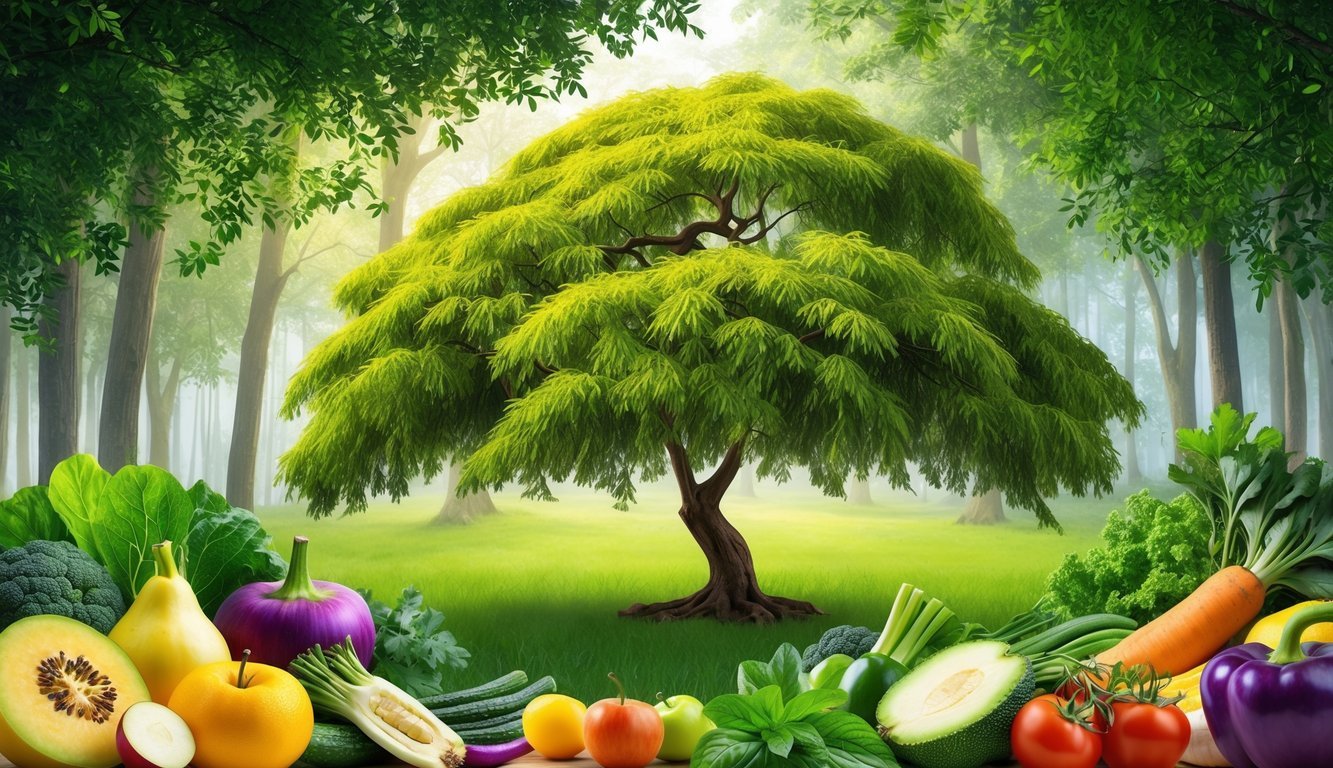
Ginkgo biloba is one of my favorite herbal supplements for brain health.
It’s derived from the leaves of the ginkgo tree and has been used for centuries.
I often hear people talk about its potential benefits, such as improving memory and concentration.
The antioxidants in ginkgo may help shield brain cells from damage.
Some studies suggest that it can also enhance circulation, which is important for brain function.
There are various forms available, including capsules and extracts.
I appreciate that Ginkgo biloba is generally well-tolerated, but it’s always a good idea to check with a healthcare provider if I’m considering adding a new supplement to my routine.
Overall, it seems like a solid choice for anyone looking to support healthy brain aging.
6) Green Tea
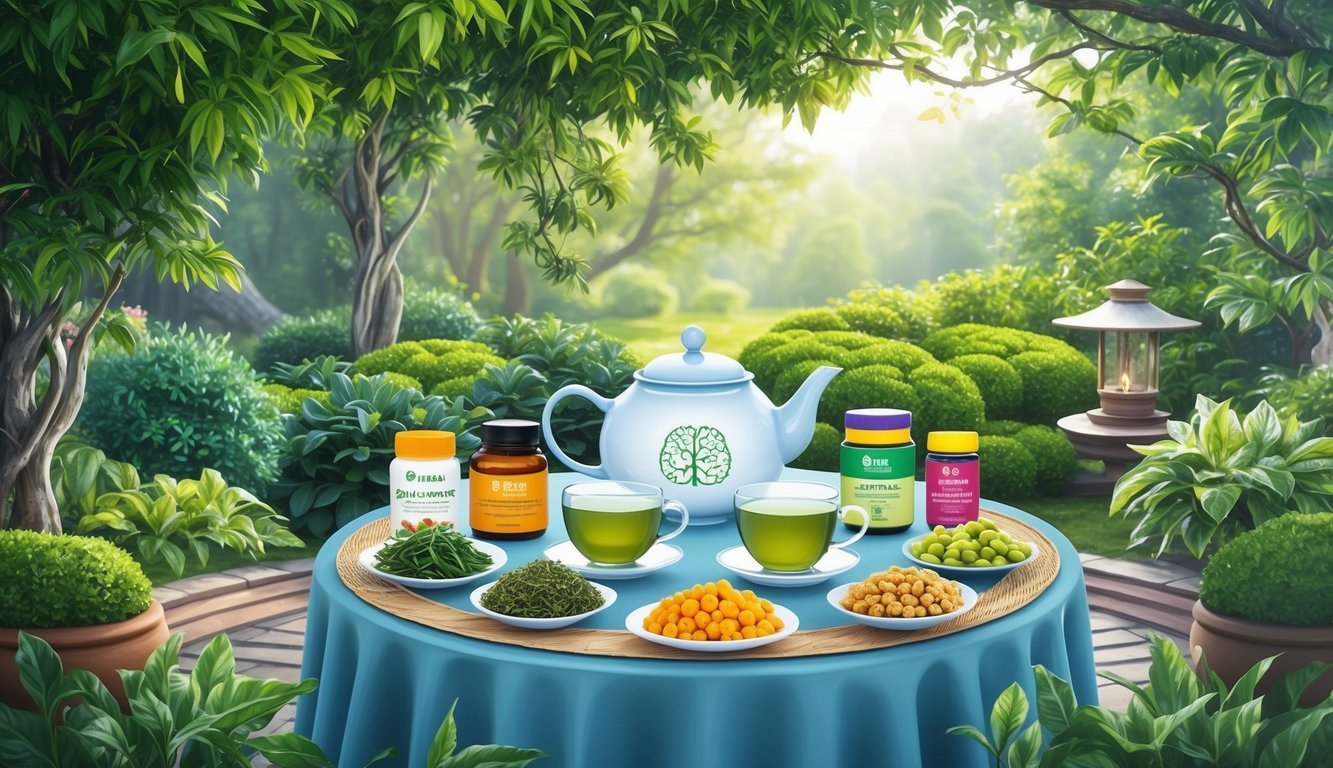
I often turn to green tea for a simple and effective boost for my brain health.
It contains catechins, a type of antioxidant that helps protect my brain from oxidative stress.
Studies suggest that regularly drinking green tea may lower the risk of cognitive disorders.
One study found that people who enjoyed tea had a 35% reduced rate of developing such issues.
Additionally, I’m intrigued by the connection between green tea and Parkinson’s disease.
Research indicates that consuming two cups daily can reduce the risk of this condition by 26%.
Aside from its protective benefits, green tea also enhances focus and mental clarity.
The moderate caffeine content, combined with an amino acid called L-theanine, supports improved attention while keeping me calm.
Integrating green tea into my daily routine feels like a delicious way to support my brain as I age.
Whether I sip it in the morning or during a relaxing afternoon break, it’s become a staple in my life.
7) Walnuts
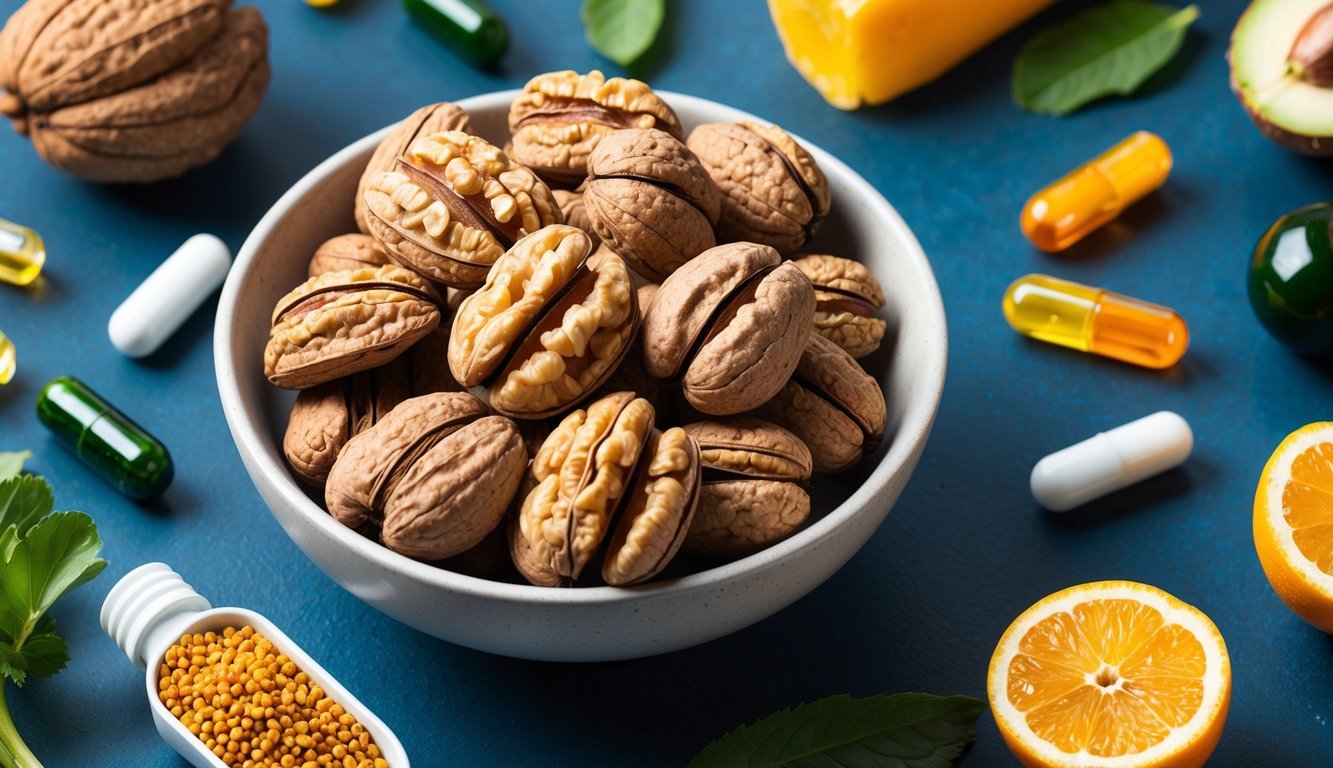
I’ve come to appreciate walnuts for their numerous health benefits, particularly for brain aging.
They’re packed with healthy fats and antioxidants that can help reduce oxidative stress and inflammation.
That’s crucial for maintaining cognitive function as we age.
Research has shown that regular walnut consumption is linked to improved cognitive abilities in older adults.
When I include walnuts in my diet, I feel good knowing I’m providing my brain with essential nutrients.
These nuts are not just tasty; they’re also rich in phytochemicals, including flavonoids and polyphenols.
These compounds are important for brain health and can aid in recovery from injuries.
Incorporating walnuts into your meals can be easy.
I like to toss them in salads, add them to oatmeal, or enjoy them as a snack.
It’s a simple way to support my brain health while enjoying a delicious treat.
8) Broccoli

I’ve always found broccoli to be a powerhouse when it comes to brain health.
Packed with vitamins, minerals, and fiber, it’s one of those veggies that I try to include in my meals regularly.
One cup of raw broccoli is low in calories but loaded with essential nutrients.
It contains plenty of vitamin K, which has been linked to better cognitive function.
There are also bioactive compounds in broccoli that may help reduce inflammation and oxidative stress in the brain.
These benefits are particularly important as I consider ways to support healthy aging.
I enjoy adding broccoli to stir-fries, salads, or even just steaming it as a side dish.
Its versatility makes it easy to integrate into my diet while boosting my nutrition.
Incorporating this green vegetable can be a simple yet effective way to nurture my brain and overall health.
9) Pumpkin Seeds

I love incorporating pumpkin seeds into my diet.
They are packed with essential nutrients that support brain health.
These tiny seeds are a fantastic source of magnesium, which I’ve read plays a crucial role in maintaining healthy brain function.
Just a serving can provide a significant portion of my daily magnesium needs.
This mineral is important for reducing stress and improving sleep quality.
Pumpkin seeds are also rich in antioxidants, like vitamin E. Antioxidants help protect my cells from oxidative stress, which can impact my overall health.
With a satisfying crunch, I often add them to salads or smoothies.
They’re not just nutritious; they also enhance the flavor of my meals.
Plus, they provide healthy fats, including omega-3s, which are vital for brain structure and function.
These nutrients are key for supporting cognitive processes as I age.
10) Ashwagandha
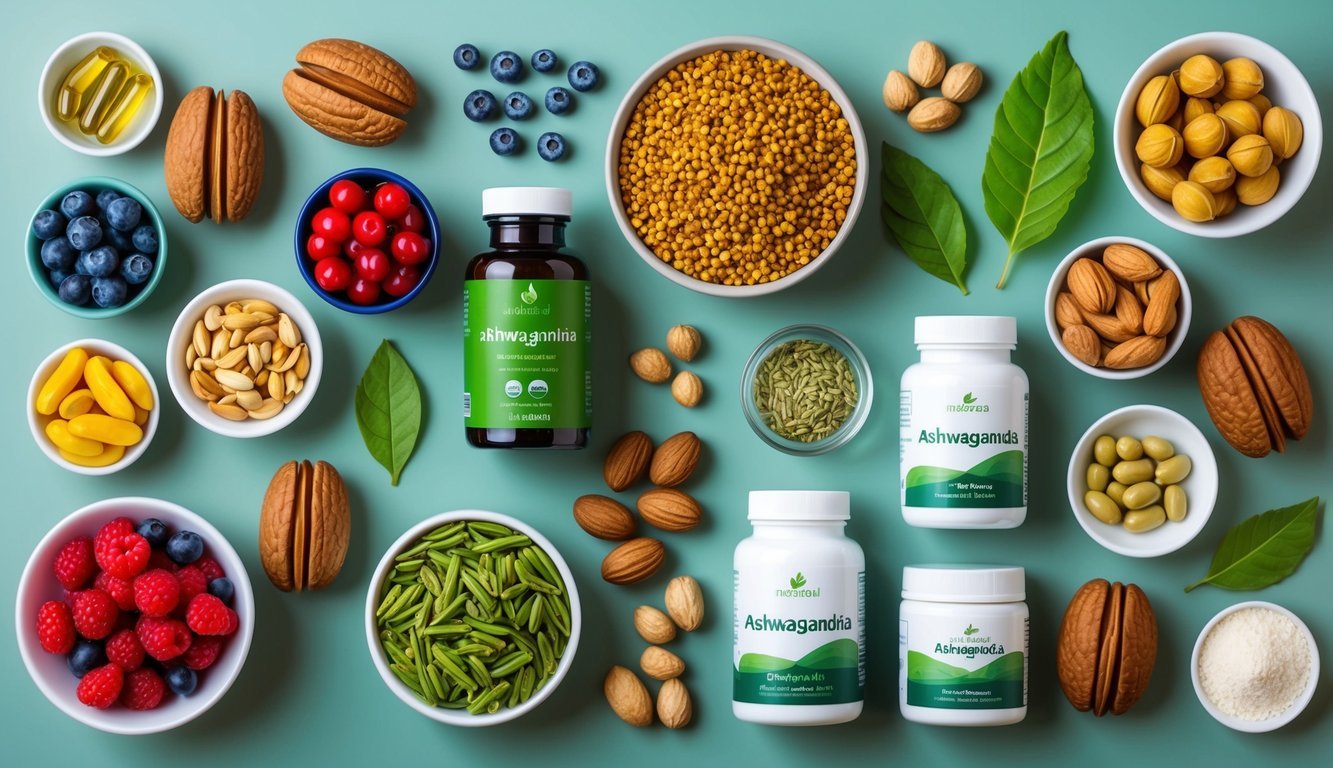
I’ve come across ashwagandha as a popular adaptogen that can help with stress management.
It’s known for its ability to support both mental and physical health.
What I find interesting is how ashwagandha crosses the blood-brain barrier.
This ability means it may enhance cognitive function and support mood regulation.
The root is often highlighted for its potential to reduce anxiety and improve focus.
I’ve seen it included in various brain health supplements because of these qualities.
When considering ashwagandha, many products combine it with other beneficial herbs, like holy basil and Rhodiola.
This combination can create a more well-rounded approach to supporting brain health.
As with any supplement, it’s important to consult with a healthcare professional before starting.
By doing this, I can ensure it’s a good fit for my personal health journey.
The Science Behind Brain Health
Staying sharp as we age involves understanding how our brains change over time and the role nutrients play in cognitive function.
Let’s dive into how brain aging occurs and how specific nutrients can support our mental agility.
As we get older, our brain’s processing speed may slow down, and memory retention can become more challenging.
However, essential nutrients like omega-3 fatty acids, antioxidants, and B vitamins can help maintain cognitive function and overall brain health.
Additionally, supporting healthy eyes in the digital age with nutrients such as lutein and zeaxanthin can further enhance mental clarity and visual sharpness.
Understanding Brain Aging
As we age, our brains undergo various changes.
One significant aspect is the gradual reduction in the volume of certain brain regions, particularly the prefrontal cortex and hippocampus.
These areas are crucial for memory and decision-making.
Neurotransmitter levels, such as dopamine, also decline, which can impact mood and cognitive processing speed.
Additionally, the accumulation of beta-amyloid plaques may lead to cognitive decline in some individuals.
Adopting a healthy lifestyle can help mitigate these changes.
Regular exercise, cognitive challenges, and a nutritious diet rich in antioxidants are vital in supporting brain health as we age.
How Nutrients Affect Cognitive Function
Nutrients play a crucial role in maintaining cognitive function.
Certain vitamins and minerals enhance brain cell communication and promote neuroplasticity, the brain’s ability to form new connections.
Key Nutrients to Consider:
- Omega-3 Fatty Acids: Found in fatty fish like salmon, they support neuron structure.
- B Vitamins: Important for energy production and neurotransmitter synthesis.
- Antioxidants: Such as vitamins C and E, protect brain cells from oxidative stress.
Eating a balanced diet rich in these nutrients can lower the risk of cognitive decline.
It’s not just about avoiding unhealthy foods.
Emphasizing whole grains, leafy greens, and nuts is equally important in supporting optimal brain health as we age.
Incorporating Supplements into Your Diet
I’ve found that blending supplements into my diet can be a simple yet effective way to support brain health as I age.
It’s crucial to focus on creating a balanced approach while being mindful of potential risks.
Finding the Right Balance
When it comes to incorporating supplements, I keep my diet diverse and nutrient-rich.
I focus on omega-3 fatty acids, which are essential for brain function.
Fatty fish like salmon and herring are great sources, but I also consider supplements like DHA and EPA when needed.
I include nuts, seeds, and berries in my meals.
For instance, ground flaxseed and walnuts are easy to add to smoothies or yogurt.
I also look for comprehensive supplements that provide a mix of vitamins such as B-complex, vitamin D, and antioxidants.
Here’s a simple list to consider:
- Omega-3 Fatty Acids: From fish or algae-based supplements
- B Vitamins: For energy and cognitive support
- Antioxidants: Such as vitamin C and E from fruits and veggies
Potential Risks and Considerations
While supplements can be beneficial, always monitor their interactions with any medications.
For example, high doses of omega-3 can increase bleeding risk, especially if you’re on blood thinners.
I prioritize consulting my doctor before starting any new supplement regimen.
It’s easy to assume that more is better, but proper doses matter.
Sometimes, I note any adverse effects, like gastrointestinal issues with certain supplements, and adjust accordingly.
Keeping a journal helps me track how I feel.
Remember, it’s important to focus on food as the primary source of nutrients, using supplements as additional support.

